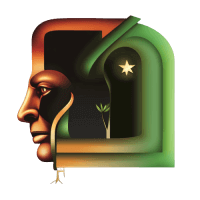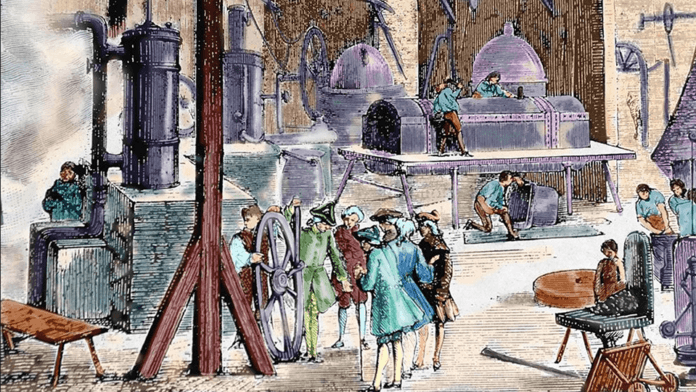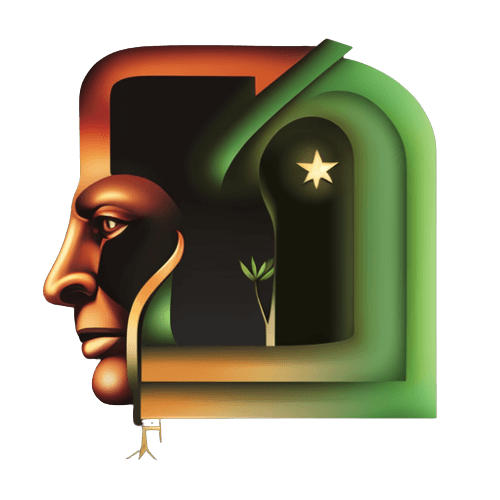The Victorian era, spanning from the early 19th century to the beginning of the 20th century, was a period of remarkable transformation and social change. This pivotal era witnessed not only technological advancements and industrial growth but also a profound shift in cultural norms and societal values. Amidst this backdrop of change, literature emerged as a powerful and influential tool that both mirrored and shaped Victorian society. In this exploration, we delve into the intricate relationship between literature and Victorian society, uncovering how literature served as a reflection of cultural values and an outlet for creative expression.
Table of Contents
1. Literature as a Mirror of Society
Literature, in its myriad forms, has always been an essential means of capturing the essence of a society’s beliefs, attitudes, and struggles. During the Victorian era, this connection between literature and society was particularly pronounced. The novels, poems, and essays produced during this time acted as mirrors, reflecting the intricacies of Victorian life, from the opulent upper class to the working-class struggles.
2. Portrayal of Social Hierarchies
One of the prominent ways literature reflected Victorian society was through its portrayal of social hierarchies. Authors like Charles Dickens and Jane Austen skillfully depicted the divisions between the rich and the poor, the aristocracy and the commoners. Novels such as “Great Expectations” and “Pride and Prejudice” illuminated the stark disparities in wealth, education, and opportunities. Through vivid characters and compelling narratives, these authors shed light on the privileges enjoyed by the upper classes and the challenges faced by the working class.
3. Exploration of Gender Roles
The Victorian era was characterized by strict gender roles and expectations, with distinct roles assigned to men and women. Literature played a pivotal role in examining and sometimes challenging these gender norms. Novels like Charlotte Brontë’s “Jane Eyre” and George Eliot’s “Middlemarch” presented female protagonists who defied societal expectations, pursuing education, careers, and independence. These narratives served as both reflections of the evolving perceptions of women’s roles and as catalysts for discussions about gender equality.
4. Moral Lessons and Ethical Dilemmas
Literature of the Victorian era often contained moral lessons and ethical dilemmas that resonated with the society of the time. Authors used their works to address pressing issues such as poverty, child labor, and the consequences of unchecked industrialization. Dickens’s “Oliver Twist” exposed the harsh realities of child labor and poverty, while Thomas Hardy’s novels explored the moral dilemmas faced by characters trapped in the complexities of rural life. These stories not only entertained but also prompted readers to contemplate societal injustices and moral choices.
5. Catalyst for Social Change
Literature was not only a mirror reflecting Victorian society but also a catalyst for social change. As writers exposed the flaws and inequities of the status quo, they sparked conversations that led to reforms and improvements. For example, the success of Elizabeth Gaskell’s novel “North and South,” which highlighted the struggles of industrial workers, contributed to increased awareness and calls for labor reforms.
6. Escapism and Fantasy
Amidst the challenges and rapid changes of the Victorian era, literature offered an avenue for escapism and fantasy. Works like Lewis Carroll’s “Alice’s Adventures in Wonderland” and J.R.R. Tolkien’s “The Hobbit” transported readers to whimsical and enchanting worlds, providing a respite from the constraints of reality. These stories allowed individuals to explore new dimensions of imagination and creativity.
7. Exploration of Psychological Realities
The Victorian era was also marked by increased interest in understanding the human mind and exploring psychological realities. Literature became a platform for authors to delve into the complexities of human emotions, thoughts, and behaviors. Novels like Emily Brontë’s “Wuthering Heights” delved into themes of passion, obsession, and the darker aspects of human nature. These explorations paved the way for a deeper understanding of the human psyche.
8. Social Critique and Satire
Literature of the Victorian era often employed satire and social critique to challenge societal norms and conventions. Authors used wit and irony to expose the hypocrisies and absurdities of their time. Oscar Wilde’s plays, such as “The Importance of Being Earnest,” masterfully employed satire to critique the upper-class society’s superficiality and values. This form of expression allowed writers to voice their dissent and offer thought-provoking commentary.
9. Empowerment through Expression
Literature provided a platform for marginalized voices and groups to express their experiences and perspectives. As the suffrage movement gained momentum, female authors like Mary Wollstonecraft and Elizabeth Barrett Browning used their works to advocate for women’s rights and empowerment. Their poems and essays challenged traditional gender norms and contributed to the growing discourse on gender equality.
10. Shaping National Identity
Literature played a significant role in shaping and defining the national identity of the Victorian era. As societies underwent rapid industrialization and urbanization, literature provided a means to preserve cultural heritage and traditions. Sir Walter Scott’s historical novels, set against the backdrop of Scotland’s history, contributed to the revival of Scottish cultural identity. These literary works served as anchors in a rapidly changing world, fostering a sense of belonging and continuity.
11. Enduring Themes and Universality
The themes explored in Victorian literature remain relevant and universal, transcending time and cultural boundaries. The struggles, aspirations, and human experiences depicted in works like Dickens’s “A Tale of Two Cities” and Hardy’s “Tess of the d’Urbervilles” continue to resonate with readers from different generations and backgrounds. These enduring themes highlight the timelessness of human emotions and dilemmas.
12. Influence on Modern Literature
The impact of Victorian literature extends beyond its own era, influencing subsequent generations of writers and shaping the trajectory of modern literature. Many contemporary authors draw inspiration from the works of Victorian novelists, paying homage to their storytelling techniques, character development, and exploration of societal issues. The echoes of Victorian literature can be found in the pages of novels, poems, and plays produced in the 21st century.
13. Reflection of Human Nature
Victorian literature’s exploration of human nature remains a hallmark of its enduring appeal. The complex characters, moral dilemmas, and psychological insights presented in these works provide readers with a mirror to their own lives and experiences. The struggles of self-discovery, the pursuit of love and happiness, and the examination of ethical choices remain integral to the human journey.
14. Lessons for Modern Society
The lessons embedded in Victorian literature continue to offer insights into the complexities of human interactions and societal dynamics. As modern societies grapple with issues of social justice, inequality, and individuality, the reflections found in Victorian works remain pertinent. The stories of characters navigating societal pressures, prejudice, and personal growth offer readers an opportunity to reflect on their own lives and values.
15. Fostering Empathy and Understanding
Literature from the Victorian era, with its diverse characters and intricate narratives, has the power to foster empathy and understanding. By immersing readers in the lives of individuals from different walks of life, these works encourage readers to step into the shoes of others and experience their challenges, triumphs, and vulnerabilities. This capacity for empathy remains a crucial tool for building bridges between individuals and communities.
Conclusion
As we conclude our exploration of the impact of literature on Victorian society, we recognize the timeless influence of words in shaping culture and reflection. Victorian literature, with its intricate mirroring of society, creative expression, and lasting legacy, bridges eras and hearts. These words penned in a different time still resonate, reminding us of our shared humanity and the power of storytelling.



